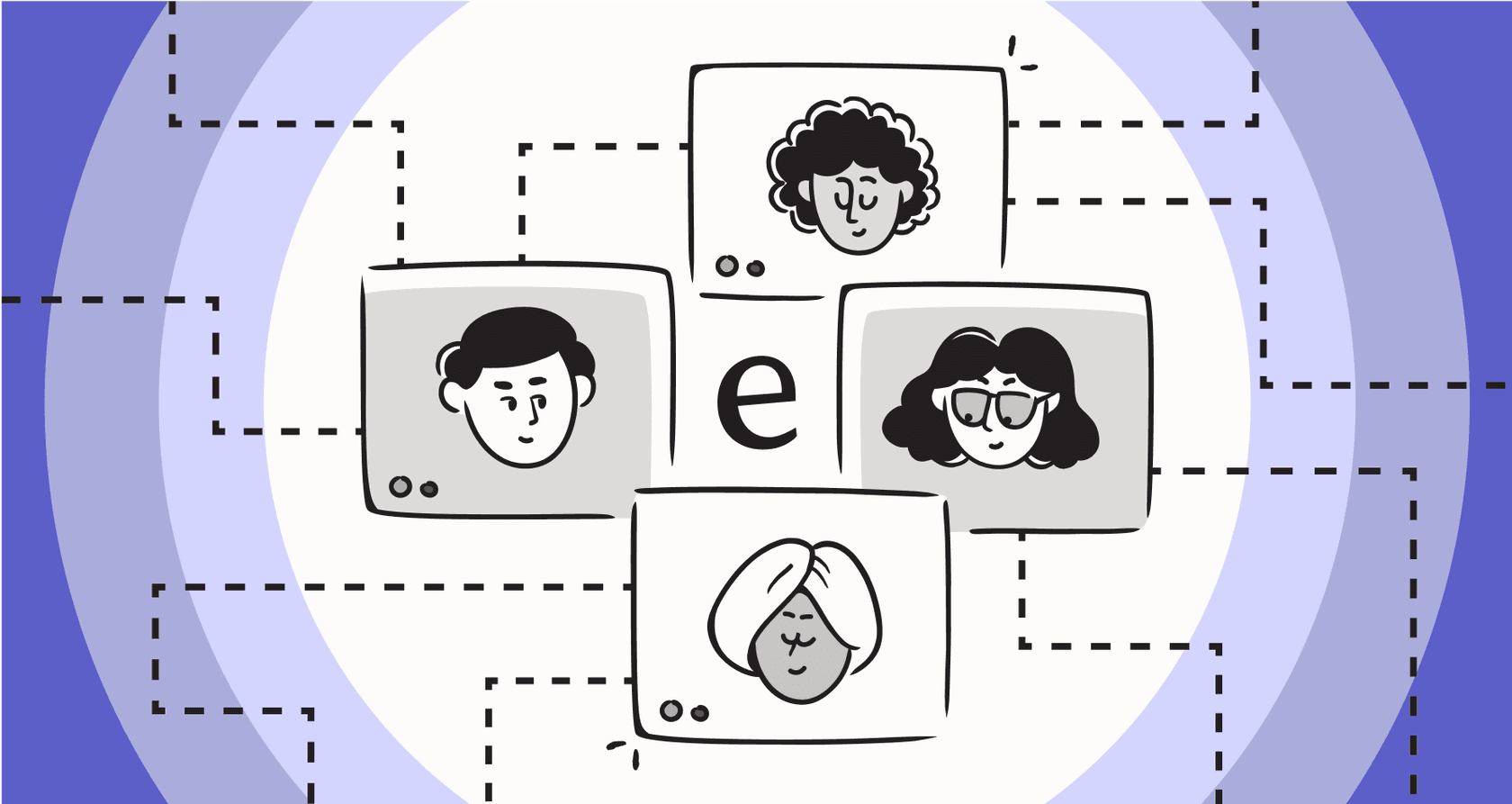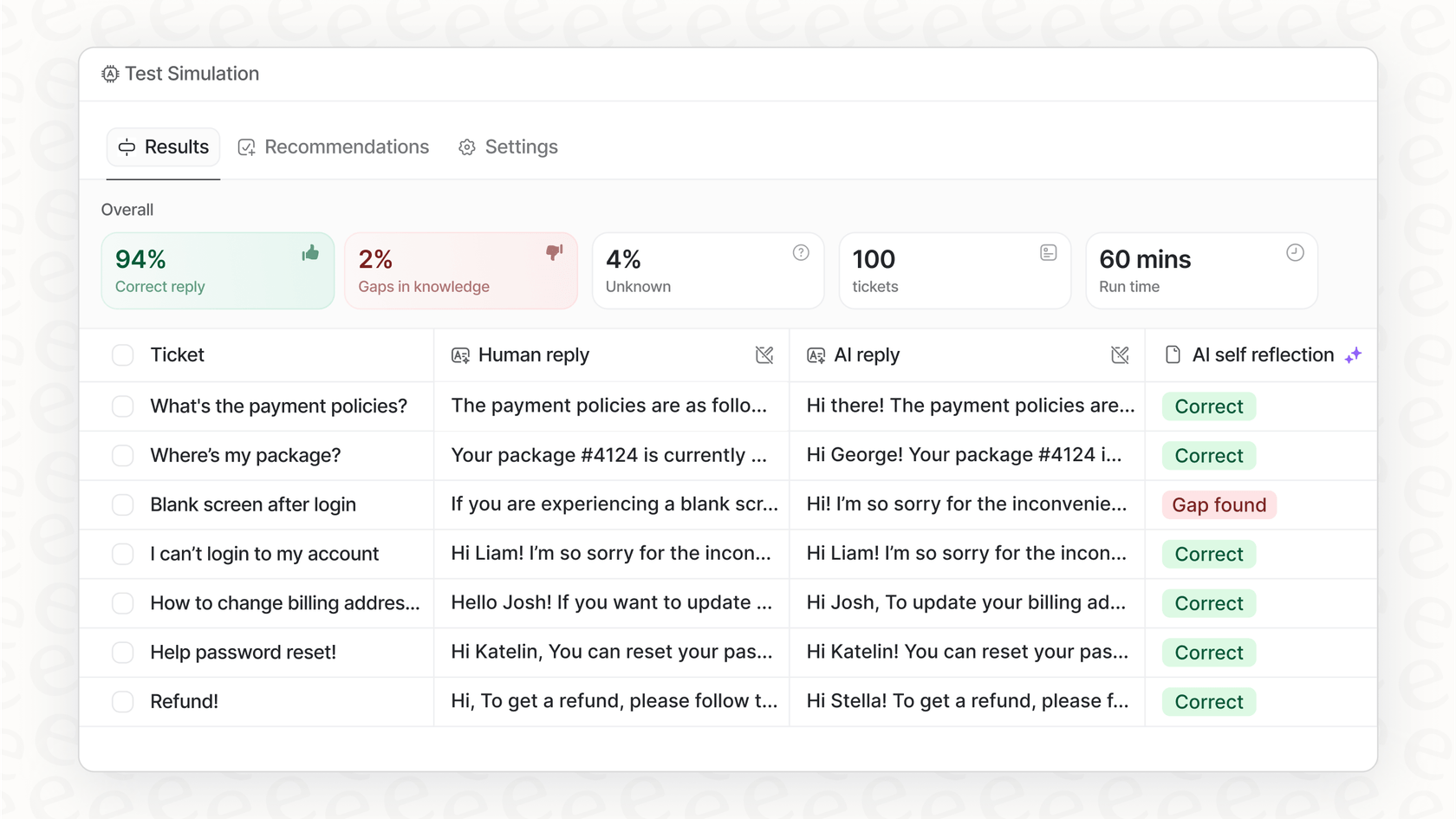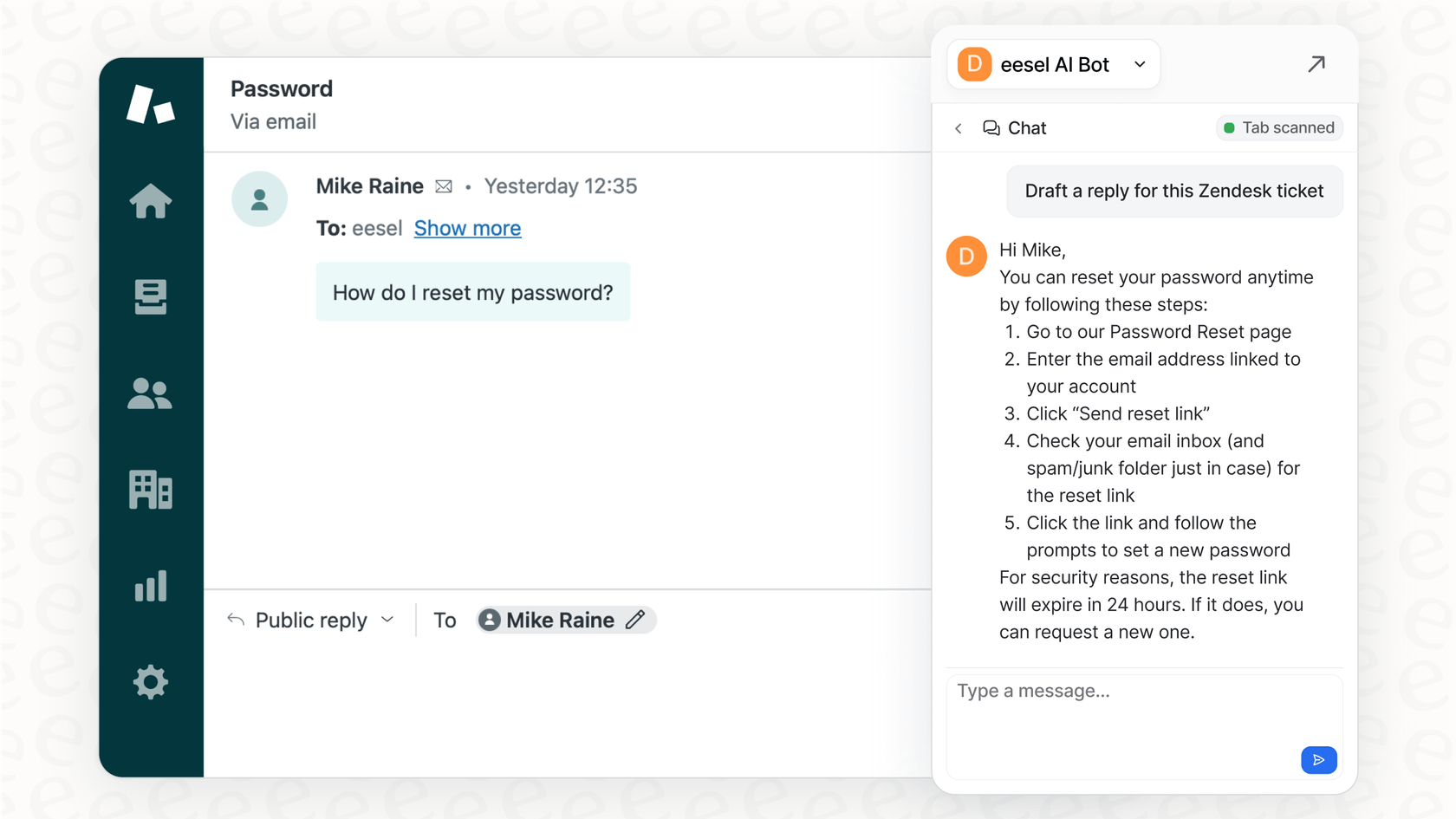The top 9 benefits of conversational AI for modern support teams

Stevia Putri
Last edited September 28, 2025

Let's be honest: customer expectations are sky-high, but support teams are often stretched to their limits. People want helpful answers instantly, and their patience wears thin fast. It can feel like you need a whole army of agents just to keep your head above water. This is exactly where conversational AI steps in, and it’s a lot more than just a simple chatbot. It’s a smart way to offer human-like support that actually solves problems.
In this article, we’ll get into the real-world benefits of conversational AI, from saving money and freeing up your team to genuinely making your customers happier. We’ll also talk about how to pick a platform that gives you all these perks without trapping you in months of complicated setup and confusing contracts.
What is conversational AI?
At its heart, conversational AI is technology that lets software understand and talk back to people in a normal, natural way, either by text or voice. Think of it as teaching a computer to have a real conversation, not just follow a rigid script.
It pulls this off with a few key pieces of tech that you don't need a computer science degree to get your head around:
-
Natural Language Processing (NLP): This is the engine that helps the software read and make sense of human language, with all its slang, typos, and weird phrasing.
-
Machine Learning (ML): This is how the AI gets smarter. It learns from every single conversation, finding patterns to get more accurate and helpful over time.
-
Natural Language Understanding (NLU): This is the really clever bit. NLU figures out the intent behind what a user is saying, not just the literal words. It’s what helps the AI know that "my order hasn't arrived" means the user is looking for a status update.
This is a massive step up from the old-school, rule-based chatbots you might be used to. Those bots are stuck on a strict path; if you ask something they weren't programmed for, they just give up. Conversational AI is flexible. It can handle questions you didn’t see coming. Best of all, the tools are getting much easier to use, moving away from things that require a developer and toward solutions anyone on the team can set up and manage.
The operational benefits of conversational AI
Beyond just answering questions, conversational AI brings some serious perks to your day-to-day operations that have a real impact on your budget. It’s all about working smarter by boosting efficiency, getting costs under control, and growing your support capacity without having to constantly hire.
1. Reduce customer service costs
One of the first things you'll notice is how conversational AI can lower your support costs. It takes care of all the repetitive, common questions that fill up your queue, like "Where's my order?," "How do I reset my password?," or "What’s your return policy?" By automating these, it lets your human agents focus on the tricky, high-stakes conversations where they’re needed most.
But here’s something to watch out for: many AI platforms have pricing that punishes you for being successful. They charge per resolution, which means the more tickets your AI handles, the higher your bill climbs. Your costs become unpredictable, and you end up paying more for the efficiency you were promised in the first place.
A much better way to go is a clear pricing model where you know what to expect. For example, platforms like eesel AI base their pricing on straightforward usage tiers, not confusing per-ticket fees. This way, your cost savings are real, and you won’t get a nasty surprise on your bill after a busy month.

2. Provide 24/7, instant support
Your customers aren't just online from 9-to-5, and they expect you to be there for them whenever they need help. Conversational AI gives you that always-on presence, letting you serve customers in any time zone without staffing a huge, round-the-clock team. This kind of instant, 24/7 support isn't a bonus anymore, it's what people expect.
The issue with a lot of older AI platforms is that getting to that "always-on" state can take months. The whole process gets bogged down with sales calls, custom development projects, and long onboarding sessions. By the time you’re finally ready to go, you've lost a ton of time and energy.
Thankfully, modern tools are changing the game. Platforms like eesel AI are built to be completely self-serve. You can connect your helpdesk, let the AI learn from your existing knowledge, and go live in minutes, not months. You can start offering instant, 24/7 support right away, without all the old-school enterprise friction.
3. Scale support operations effortlessly
What happens when you get a sudden flood of support tickets during a big sale, a new product launch, or an unexpected outage? If you only have a human team, you’re either scrambling to keep up or you've over-hired for temporary spikes. Conversational AI lets you scale your support up or down in an instant, handling thousands of conversations at once without skipping a beat.
But you can't just flip a switch and cross your fingers. To scale with confidence, you need to know exactly how your AI is going to perform before it talks to a single customer. This is why testing is so important.
A good simulation mode can make all the difference. For instance, eesel AI lets you test your AI on thousands of your own past support tickets in a safe environment. You get a clear, accurate prediction of its performance and resolution rate. This lets you tweak its behavior and launch knowing it's ready for anything you throw at it.

The customer experience benefits of conversational AI
Being efficient behind the scenes is great, but it doesn't mean much if your customers are having a bad time. The real beauty of conversational AI is its power to create better, more personal, and less frustrating experiences. When it's done well, AI doesn't feel like a robot; it feels like a helpful part of your team.
4. Increase customer satisfaction (CSAT)
The recipe for happy customers is usually pretty simple: solve their problems quickly and without a fuss. Conversational AI helps with this by cutting down wait times and giving instant answers to common problems. When people don't have to sit in a queue or wait for an email back, they feel much better about your brand.
But there's a big risk here. An AI that gives out wrong information or gets confused can be way more frustrating than just waiting for a human. It breaks trust and makes your company look like it doesn't know what it's doing. This happens a lot with generic AI models that don't have enough context about your specific business.
5. Deliver personalized and consistent answers
Real personalization is about more than just using someone's first name. It means understanding their history with your company and your internal processes to give them an answer that’s actually relevant. To do that, an AI needs to have access to the same deep knowledge your best agents have.
The trouble is, most AI tools can only learn from a single, clean source like a public help center. They miss out on all the valuable, messy context hidden in your team's past support tickets, internal wikis, and how-to guides.
A platform that can pull all of your knowledge together is a game-changer. eesel AI can instantly connect to and learn from your past tickets, your internal guides on Confluence or Google Docs, and your public help center. This makes sure the AI responds with the same accurate, on-brand voice as your most seasoned agents, creating a consistent and trustworthy experience every single time.

6. Improve first contact resolution (FCR)
First Contact Resolution (FCR) is a key metric that tells you how often you solve a customer's problem in the very first conversation. A high FCR means less work for your customers and happier people all around. Conversational AI is great for boosting FCR, but only if it can do more than just share information.
To actually resolve an issue on the spot, the AI needs to be able to take action. It should be able to look up an order, process a refund, or update an account in real-time. If all it can do is answer questions, it will just end up handing the ticket off to a human, which defeats the whole purpose.
This is where customizable actions come in. With the eesel AI workflow engine, you can set up custom API actions that let the AI look up live order info from Shopify, change a ticket field in Zendesk, or kick off any other process needed to solve the customer's problem right then and there.
The strategic benefits of conversational AI
The impact of conversational AI goes way beyond the support queue. When you put it to work thoughtfully, it becomes a strategic tool that gives you valuable business insights, empowers your team, and helps turn your support department from a cost center into a driver of growth.
7. Increase agent efficiency and reduce burnout
One of the biggest myths about AI is that it's coming to replace human agents. In reality, conversational AI is a tool that makes them better at their jobs. By taking care of the flood of repetitive questions, it frees up your agents to focus on the complex, sensitive, and relationship-building conversations where their skills really shine. This not only makes them more efficient but also helps reduce the burnout that comes from answering the same questions over and over again.

8. Gain actionable insights from customer data
Your support inbox is a goldmine of customer feedback. All those conversations contain tons of information about what's frustrating your customers, what they love about your product, and what trends are popping up. Conversational AI can sift through thousands of these interactions to spot patterns that a human would never be able to see.
The problem with many platforms, though, is that their analytics don't go very deep. They might show you basic things like deflection rates, which tells you what the AI did, but not why it did it or what you should do next.
Good reporting should give you a clear path forward. For example, the eesel AI dashboard goes beyond the basics to show you specific gaps in your knowledge base. It tells you exactly what customers are asking about that isn't covered in your documentation, so you know which help articles to create to improve both your AI's performance and your self-service options.

9. Roll out new support channels with confidence
Lots of teams want to offer support on channels like Slack or Microsoft Teams but hold back because they're afraid of getting swamped with a new wave of questions. To expand with confidence, you need tight control over what your AI automates, so you can start small and grow as you build trust in the system.
Unfortunately, many other tools lock you into rigid, all-or-nothing automation. You either turn it on for everyone or for no one, which is a pretty risky way to go.
With eesel AI, you’re in complete control. You can set up the AI to only handle tickets with certain tags or keywords, or limit it to just one channel to start. This lets you roll out automation gradually and safely, passing anything the AI isn't ready for to your team. It gives you the confidence to expand your support presence without overwhelming your agents.
This video guide for 2024 explains how conversational AI acts as a powerful tool for businesses, moving beyond simple scripts to enable genuine conversations.
Get the benefits of conversational AI without the headache
Conversational AI is a powerful technology. It’s proven to cut costs, make customers happier, and empower your support team to do their best work. It’s no longer a question of if you should use it, but how.
In the past, getting these benefits meant signing a pricey, long-term contract for a complicated platform that took a team of developers months to set up. That era is over. The new generation of AI tools is built for speed, simplicity, and control.
Ready to see the benefits of conversational AI for yourself? With eesel AI, you can connect your helpdesk and build your first AI agent in minutes. Start for free and see how much you can automate today.
Frequently asked questions
Conversational AI reduces costs by automating responses to common, repetitive customer queries, freeing up human agents for more complex issues. This efficiency helps avoid the need for extensive staffing to manage increasing ticket volumes, especially when combined with transparent pricing models.
One of the primary benefits of conversational AI is its ability to offer instant, round-the-clock support, addressing customer needs regardless of time zones or business hours. It also allows businesses to scale support operations effortlessly, handling thousands of conversations simultaneously during peak times without additional staffing.
Yes, when implemented correctly, the benefits of conversational AI significantly increase customer satisfaction by reducing wait times and providing instant, accurate answers. The pitfall lies in poorly configured AI that gives incorrect information, which can lead to greater frustration and erode customer trust.
The benefits of conversational AI empower human agents by offloading routine questions, allowing them to focus on complex, high-value interactions. This shift reduces the monotony of repetitive tasks, significantly decreasing agent burnout and making their work more engaging and impactful.
To achieve personalization, the benefits of conversational AI rely on integrating with all available knowledge sources, including past tickets, internal wikis, and public help centers. This comprehensive learning enables the AI to respond with accurate, context-aware, and on-brand answers, ensuring a consistent experience across all interactions.
To quickly gain the benefits of conversational AI, businesses should seek platforms that are self-serve and designed for rapid deployment, often integrating with existing helpdesks in minutes. This avoids long sales cycles and custom development, allowing teams to go live and start automating support much faster.
The benefits of conversational AI include its ability to analyze thousands of customer interactions to identify patterns and common pain points that human agents might miss. Advanced platforms offer reporting that highlights gaps in knowledge bases, guiding content creation and improving self-service options.
Share this post

Article by
Stevia Putri
Stevia Putri is a marketing generalist at eesel AI, where she helps turn powerful AI tools into stories that resonate. She’s driven by curiosity, clarity, and the human side of technology.



